
Note: This article contains spoilers
The superficial story of "Wading the Angry Sea" is the revenge of a father who lost his daughter. It is a story that demonstrates the greatness of father's love and "father's love is like a mountain."
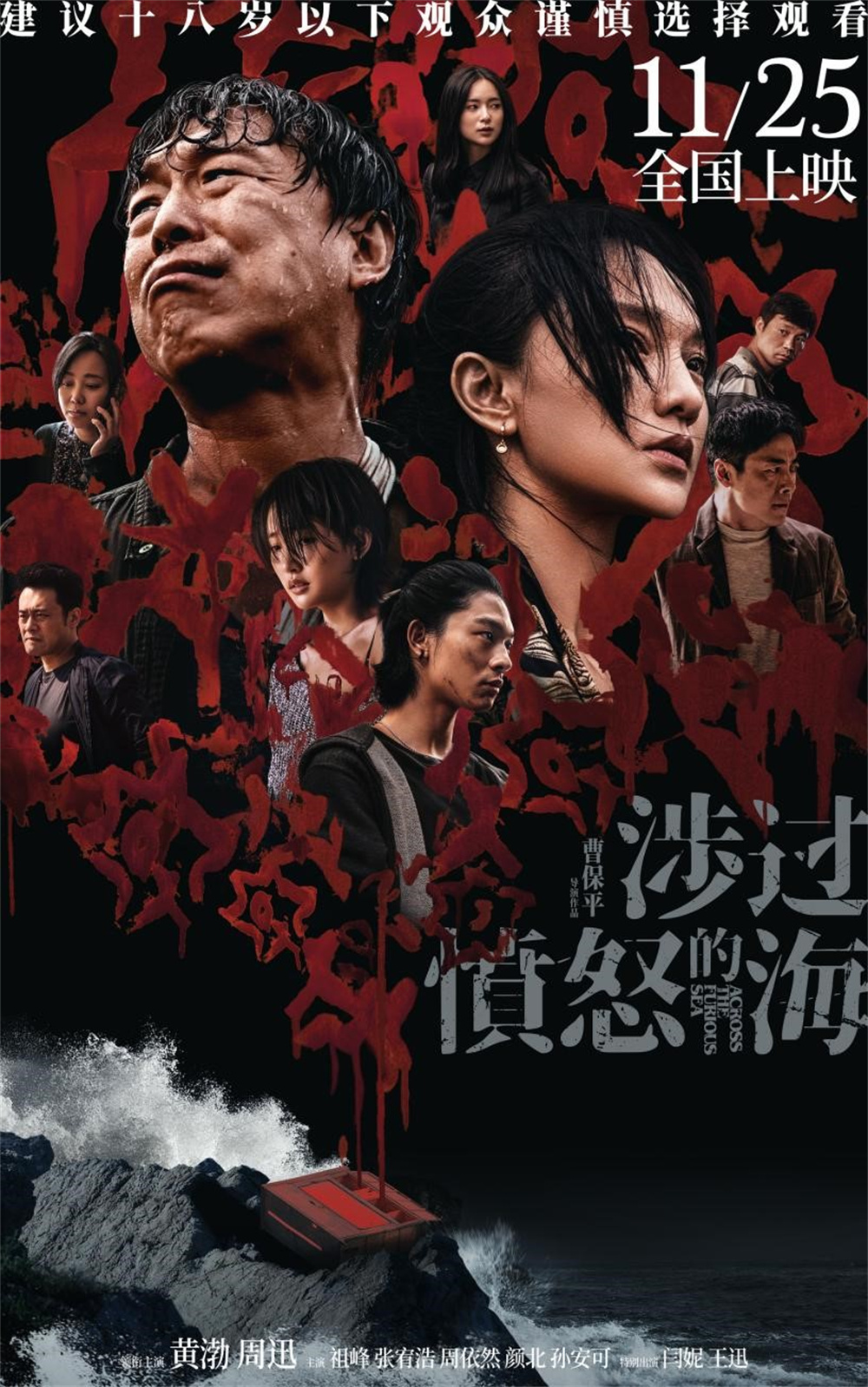
"Wading the Angry Sea" poster
At the beginning of the movie, Jin Yushi (played by Huang Bo), who owns his own small fleet and fishes at sea, receives a call from his ex-wife that his daughter Jin Lina (played by Zhou Yiran) who is studying in Japan is missing. After divorcing her ex-wife, Jin Lina lived with Jin Yueshi. Although Jin Yueshi had some difficulty in supporting his daughter who was studying abroad, he was still happy with it. After all, it was a respectable thing.
At first, Jin Yueshi didn't think the worst about his daughter's disappearance. He knew that his daughter had always been well-behaved and there shouldn't be anything out of the ordinary. So when he went to Kyoto University to look for his daughter, he was still thinking about fishing, and he was in the mood to take a selfie with a smiling face at the gate of the university.
Bad news came quickly. Her daughter was dead and had been stabbed 17 times. When Jin Yueshi saw her daughter again, it was her body. The suspect points to her daughter's boyfriend Li Miaomiao (played by Zhang Youhao) in Japan. The furious Jin Yushi began to chase the murderer. Li Miaomiao quickly fled back to China. Although his daughter's funeral in Japan has not yet been processed, Jin Yushi has returned to China to pursue the murderer.
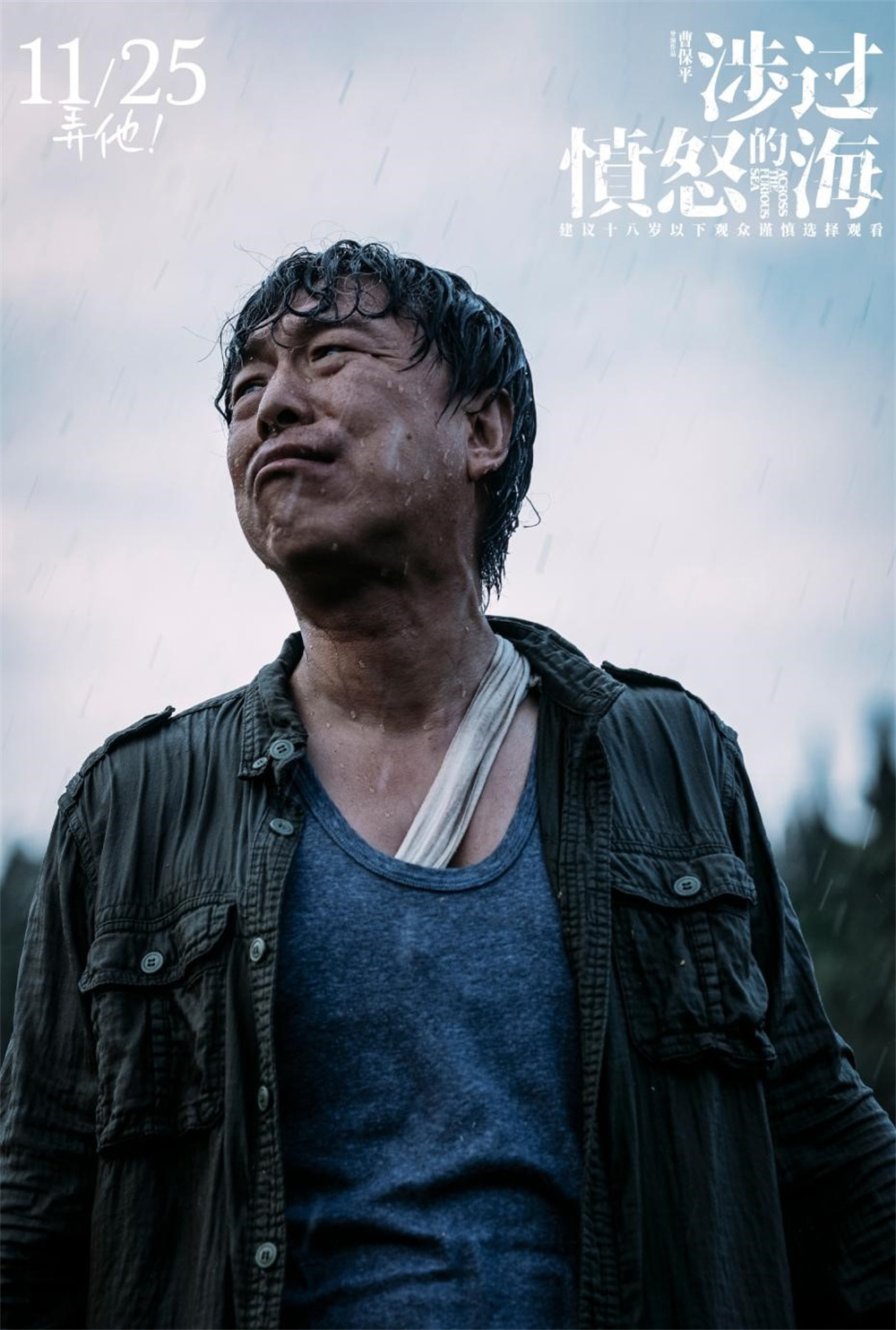
Jin Yushi (played by Huang Bo), an angry father
"Revenge for love", such a narrative seems so logical. What's more, Li Miaomiao was born in a wealthy family. He has an anti-social personality. He has done countless evil things since he was a child (it has to be said that Zhang Youhao played Li Miaomiao hatefully enough), but he can always get away with it. Because he has a mother Jing Lan (played by Zhou Xun) who loves him deeply and has been cleaning up his mess, and because the wealthy class represented by his biological father Li Lie (played by Zu Feng) and his mother Jing Lan have strong "energy" - —They can easily mobilize more resources to settle things and help their children escape responsibility.
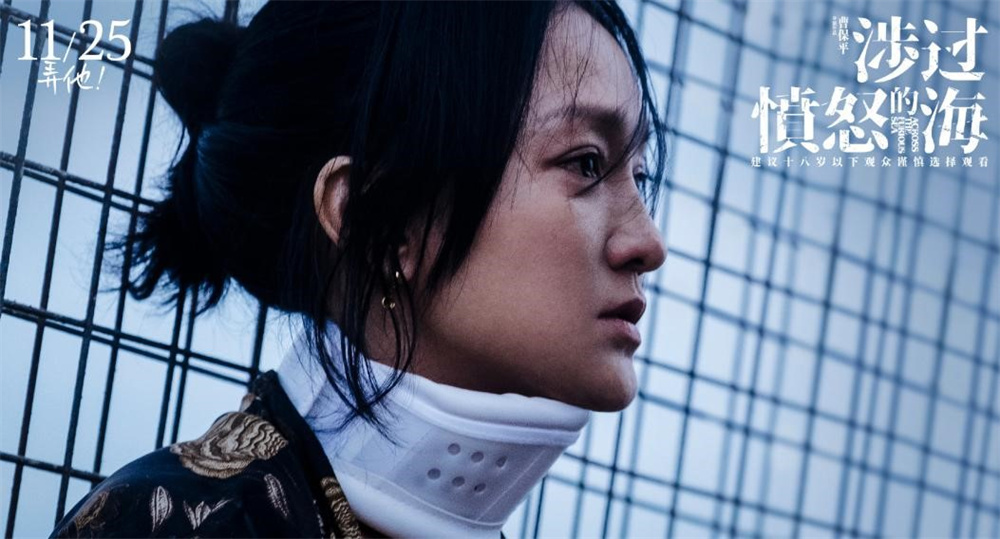
Jing Lan (played by Zhou Xun), a mother who can do anything for her son
Jing Lan is played by Zhou Xunlai, and the audience's love for the actor somewhat weakens their hatred of Jing Lan and the people she represents. They look so elegant and decent, they can easily solve many difficult things with just one phone call, and they can calmly and calmly say to the father of a dead daughter, "You can't find him (Li Miaomiao)" "People only get angry when they are incompetent"...
Underneath the elegance, there is nothing but filth. The basic fairness mechanism of society is corrupted by such people. What the movie takes the lead in deconstructing is this crazy, "other people's children will never die", "mother's love" style of protecting the calf. Although Zhou Xun's performance is so good, don't be impatient to be moved by Jing Lan's motherly love. If a weak person is really unfortunate enough to be hurt by Li Miaomiao, this mother will help Zhou to abuse her in the name of love.
The class element greatly enhances the credibility of this revenge story. Coupled with the highly intense, extremely depressive, and black cloud-overwhelming anger that the movie exaggerates, it makes people feel that this is Park Chan-wook's revenge trilogy.
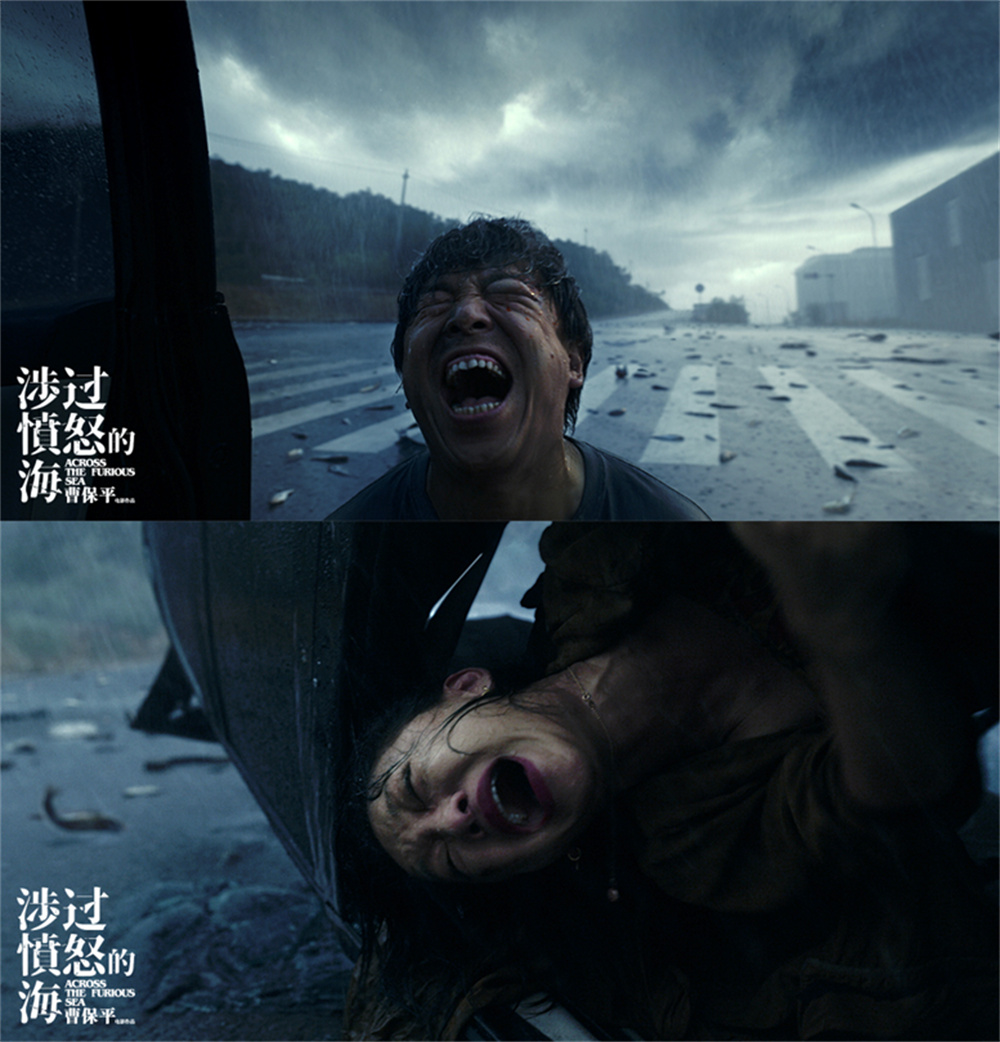
The emotional tone of the movie is depressing and thick, and such a hoarse voice can only be released briefly.
However, when Jing Lan made the key question to Jin Yueshi, "You don't love your daughter at all," the foundation of "revenge for love" had already collapsed, and the movie needed someone to speak out and point out the truth.
Cao Baoping laid the groundwork from the beginning. Is the golden meteorite really revenge for love? Does he really love his daughter so much? Why does this love have so many annoying impurities?
For example, when Jin Yushi looked at the wounds on his daughter's body, he couldn't control his instinctive vomiting. He didn't even have the courage or love to look directly.
For example, when Jin Yushi smashed his head in the hotel closet and bled, he muttered, "That's your daughter, you must be in pain." He needs pain caused by external forces to prove his pain and to show his deep love.
For example, Jin Yushi mentioned to the Japanese police and Jing Lan that everyone on the island knew that Jin Lina was his daughter, and it would be embarrassing for him to be touched by others.
What is even more shocking is that Jin Yueshi showed others the video of his daughter being violated in order to find those people and give them a severe lesson to prove his daughter's "innocence". For this reason, he did not hesitate to miss it His daughter was cremated, and he did not hesitate to damage the privacy of his dead daughter...
Jin Yueshi may love his daughter, but the greater probability is that before loving his daughter, what he loves more is his face, and what he loves more is the image of him loving his daughter. Jin Yueshi's motive for angry revenge may be for his daughter, but the greater probability is that she is his Lao Jin's daughter. Others dare to touch, slander or hurt her without his permission. Jin Yueshi will never do it. I'll let it go!
Is it "father's love is like a mountain"? The movie raises a cold and cruel question: "Paternal authority is as strong as a mountain". Does anger arise from love? Anger is just a form of "daddy taste".
When the mystery of Jin Lina's death was solved at the last moment of the movie, Jin Yueshi truly realized for the first time in his life that he had never understood his daughter. He has no idea about his daughter's life after coming to Japan, he doesn't know about his daughter's love affairs, he doesn't know about his daughter's thoughts, and he doesn't know about the huge and difficult-to-heal psychological trauma that his daughter has suffered since childhood.
The sorrow of the golden meteorite is also the sorrow of many Chinese parents. Do they love their children? Love. But many times, it is love like loving a personal item. They demand that their children grow up according to their vision, and they shape their ideal children with wishful thinking - even if everything they choose for their children is never what the children like... they still insist on going their own way and are moved by themselves - —Everything I do is for your own good, and I have sacrificed so much to let you live a better life...
Jin Lina is the epitome of tragedy. She seemed to be surrounded by her father's strong love, but in fact, in her growth experience, she did not feel the existence of that kind of two-way love that gave her infinite tolerance and security. She is like an over-dried soil, so desperately trying to absorb any raindrops of love, but when they fall, they always disappear so quickly; the more Jin Lina desperately wants to see the existence of love, the more it dries up. Quickly, she hid in the cupboard and drew false hopes like she did when she was a child. Not only did her love dry up, but her blood also dried up.
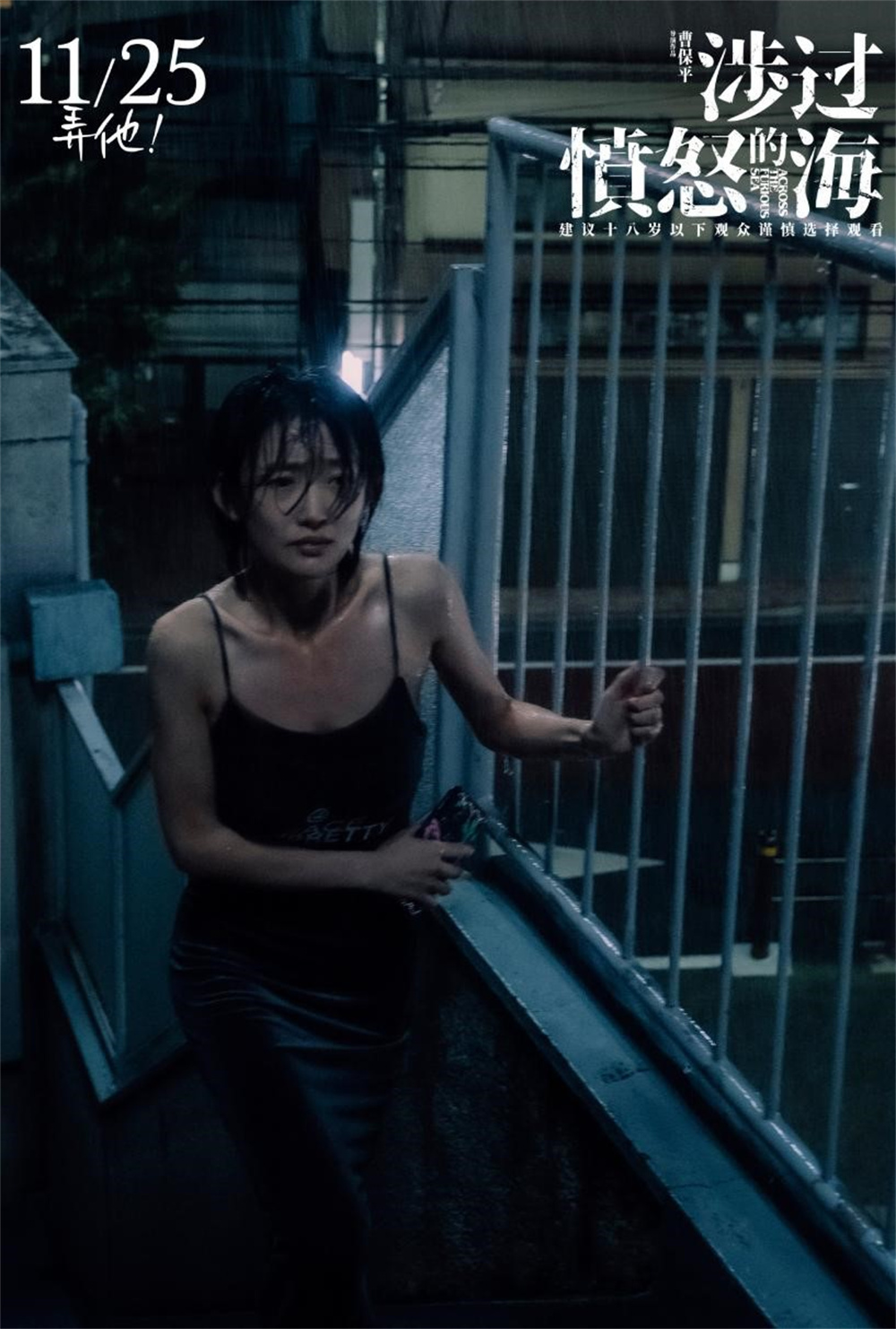
Jin Lina (played by Zhou Yiran) who has never recovered from the loss of love
In addition to the reminder that "viewers under the age of 18 are advised to watch with caution", "Wading the Angry Sea" should also have the slogan "Must-see for parents". Cao Baoping is so sharp that he is almost cruel. With an extreme tragedy, he stabbed the lungs of his parents who were full of "fatherly" feelings. "Fatherhood" and "dadness" are not exclusive to men. Any parent who treats children as personal belongings and replaces their children's free choices with absolute personal will is a spokesperson for "fatherhood" and is full of "dadness". Not aware of it. Domestic film and television dramas are accustomed to praising the greatness of parental love. "Wading in the Angry Sea" can face the bleak life and face the dripping blood, which is a breakthrough.
Of course, "Wads of the Angry Sea" is not a perfect movie. Extremes often appear at the same time as extremes. Just like parents' control over their children, it is often mixed with love and inseparable. "Daddy taste" should be rejected, but love cannot be rejected, otherwise it will easily go to extremes.
In the subculture trend of "parents are a scourge", works such as "Walking Through the Angry Sea" that deconstruct "fatherly love" and mock "dadness" are very popular among young audiences; such movies will also become a popular platform for those who have a relationship with their parents. The children who have a tense relationship have the confidence to "break up" with their parents, because the movie proves that the so-called "love" of the father is not love at all, and the "fall" of the children is attributed to the failure of their parents... But I still want to pour cold water on it: when When an adult attributes all responsibilities to his family of origin and his parents, he essentially gives up his subjective initiative as an adult. In fact, "parents are a disaster" has become an excuse for some irresponsible young people to give up on themselves. ——Everything is my parents’ fault, I just spent my whole life like this.
The audience sympathizes with Jin Lina's experience, but if they are not careful, a person who puts all the blame on her parents will become the disgusting Li Miaomiao. They seem to be completely different - one is heading for suicide, the other enjoys killing others; but they reach the same goal - they never really grow up.
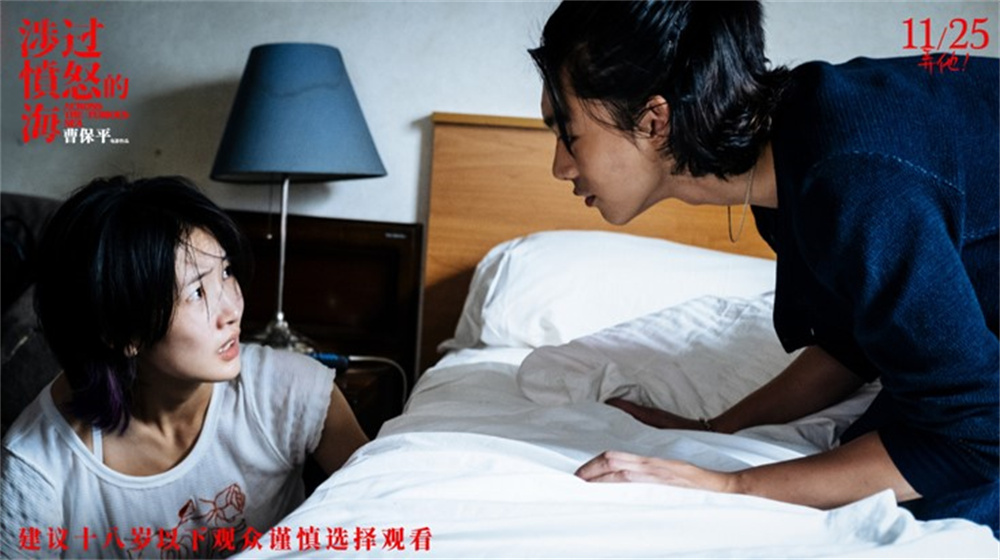
Li Miaomiao and Jin Lina are in a deformed relationship
In fact, the biggest creators of "dadiness" in East Asian society have never been East Asian parents. Just like the golden meteorite in the movie, when Jin Lina was so young, she "wanted a girl to become a phoenix" against her will. Why didn't he just lie down and let go? How many parents hope that their children will become talented and climb higher, so that their children can become people of Jing Lan's class and become "superiors". When the operating logic of this world is "big fish eat small fish, small fish eat shrimps", many parents have no choice but to force their children to "roll up", and once this kind of forcing exists, the "daddy taste" will exist. It is easy to say that it is a "let go" parent, but if the rules are still centered on "people are better than people", how many of us outside the big screen can educate happily and let nature take its own course? At most, we can only try not to be "dad-like" ourselves while forcing our children.
In this sense, the movie only ridicules the "dadiness" of parenthood, which is also a conservative narrative strategy - although in domestic movies, this is bold enough. "Wide the Angry Sea" was launched in 2019 and finally hit the big screen in 2023. The ups and downs experienced during the process can be imagined, and we cannot bear to be too harsh on the expression of the movie.


